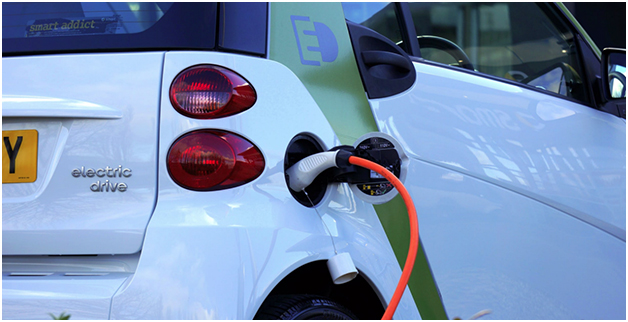
The new revolution means vehicles would no longer need hours to charge, as the pumpable liquid allows users to store high amounts of electricity and hydrogen. Within a matter of moments, electricity powered vehicles could be fully charged, according to the scientists responsible for developing this energy storage system.
At the University of Glasgow (UoG), a group of chemists have conducted research and developed a flow battery system using a nano-molecule which stores electric power or hydrogen gas in a new hybrid energy storage system.
They recently featured in the Nature Chemistry Journal, in which they went in-depth about their Hybrid-Electric Hydrogen Flow Battery. They said the new system was based on the design of a nanoscale battery molecule, and explained how it could release power on demand as electricity or as hydrogen gas - both of these sources could be used to fuel cars in the future.
Looking closely at the study conducted by the group of chemists, when a concentrated amount of the liquid containing the nano-molecules is made, the energy it can store and produce increases up to tenfold. The energy can then be subsequently released as either electricity or hydrogen gas, offering flexibility for the user.
An immediate advantage this represents is that electric cars would no longer require prolonged recharging times, as the material would be a pumpable liquid. Meaning the time it would take to recharge an electric car battery would be the same as that of a traditional diesel or petrol refill. The new liquid could even be used to replace old battery liquid to recharge electric vehicles.
This method was initially developed by Professor Leroy Cronin, Dr Mark Symes and Dr Jia Jia Chen, who have stated that it will pave the way for new energy storage systems for electric cars in the future. Professor Cronin said "for future renewables to be effective, high capacity and flexible energy storage systems are needed to smooth out the peaks and troughs in supply."
"Our approach will provide a new route to do this electrochemically and could even have application in electric cars where batteries can still take hours to recharge and have limited capacity.
"Moreover, the very high energy density of our material could increase the range of electric cars, and also increase the resilience of energy storage systems to keep the lights on at times of peak demand."
At Green Recruitment Solutions, we have an experienced team of consultants who are well-versed at working within the Energy Storage sector. If you are a company seeking to recruit, or a candidate in search of a new role within the Energy Storage sector; please contact Irfan Lohiya on:
T: +44 121 285 6070
M: +44 7580 170 406
E: ilohiya@greenrs.co.uk
W: greenrs.co.uk

